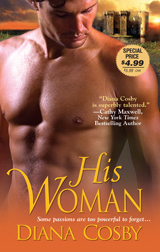REJECTIONS—THE LESSONS WITHIN
Before I discuss rejections, I had to look up Merriam-Webster’s definition:
Rejection: 1 a: to refuse to accept, consider, submit to, take for some purpose, or use <rejected the suggestion> <reject a manuscript>
I found it interesting that Merriam-Webster’s first reference was at the heart of a writer’s issue. But, remember, the impact of the rejection is that of our choosing.
 I’m an extreme optimist. I believe everything happens for a reason, and I believe, however tragic, good can be found in any situation. It’s up to us to look past the hurt, to find the lessons within the challenging situation which will make us better, and will make us stronger.
I’m an extreme optimist. I believe everything happens for a reason, and I believe, however tragic, good can be found in any situation. It’s up to us to look past the hurt, to find the lessons within the challenging situation which will make us better, and will make us stronger.
Let’s face it, if you decide to write and submit your stories, rejections are part of the process. Instead of focusing on the negativity of a rejection, let’s break down some of the many reasons why an agent or an editor doesn’t accept your work:
- Their client list or book slots for a certain period is full—a pure business circumstance—not a rejection.
-
The agent or editor doesn’t connect with your voice. As an author, we want the person who is marketing our novel to not only believe in our work, but to be passionate about it as well. Anything less and they won’t market your work to booksellers and other venues to the fullest extent. So, a pass by an agent or an editor allows you to connect with another business professional who totally Believes in your writing.
-
Your work is sub par—[show vs. tell.] less is more. I’ve always thought the amazing thing about writing is that each of us believes our current work-in-progress is the most amazing, well-written story. This belief, however realistic, is necessary for us to dedicate the months necessary to finish the novel. However brilliant your work, until it’s strong, emotionally evocative writing, it won’t be competitive in today’s market. Use the rejection as a tool to let you really focus on your story, to ensure it’s your strongest writing. If you are fortunate enough to receive feedback from an agent or editor, review it. Does the feedback make sense to you? Do you think it will strengthen your novel? If so, use their comments as a base to tighten your work further for future submissions. The bottom line is, once your novel is completed, it’s a marketable resource. If you don’t sell your book at this moment, don’t despair. Down the road, pull it out, tighten it to a target market, then resubmit it.
-
Something about your story doesn’t fit their guidelines. It’s really important before you decide to submit your work to a line, that you’ve done your research. If your novel is about a shape shifter and you submit it to a line seeking inspirational stories, odds are you are going to receive a thanks but no thanks. Okay, so I used an extreme example, but I hope you see my point. It’s imperative to ensure your story is targeted at the correct market venue. Otherwise, it’s not a rejection, but a letter stating that your work doesn’t fit their line, which makes sense.
Rejections are tough to receive. When I hit 100, I quit counting them. I figured that I’d learned how to acquire them. 🙂 But, I also learned the value of a rejection, that they’re far more than a slip of paper dismissing my work. Rejections are proof that I’m a dedicated professional, that I’m a writer who dares to believe in myself enough to submit my work, and most of all, a person who follows their dreams. Adversity tests if we truly want to write. Nothing worth anything is ever easy. Never give up—perseverance is the key. My sincere best to each of you as you follow your heart.
Thank you for stopping by!
***
Please leave a comment or question for Diana to enter to win a free copy of HIS WOMAN.
Visit Diana’s website to learn more about her and her books.


